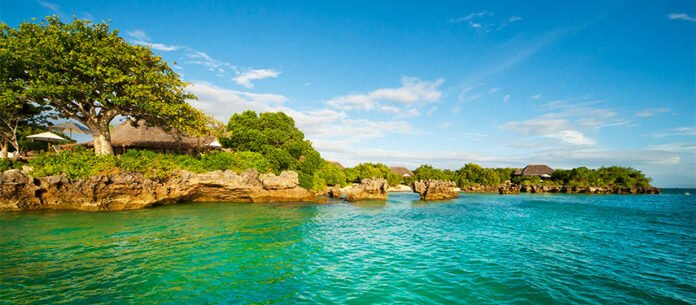Studying in Namibia is an adventure. It’s also a place where strong health insurance isn’t optional. Public facilities vary outside the big cities, private hospitals often want payment up front, and serious cases may require evacuation to South Africa or beyond. That’s not alarmist—it’s the consensus in official guidance. The UK’s Foreign, Commonwealth & Development Office (FCDO) says private hospitals may insist on payment even if you hold insurance and warns that some policies aren’t recognized locally; they also list the emergency numbers you’ll actually dial in-country. The advice is clear: make sure your cover includes local treatment and medical evacuation.
Australia’s Smartraveller echoes this. They urge comprehensive insurance that covers all overseas medical costs and evacuation, noting you might need to be evacuated to South Africa if you’re seriously ill or injured. They also caution that not every Namibian facility recognizes every policy—so check acceptance with your insurer before you buy. That practical detail matters when minutes count.
The U.S. CDC’s traveler view adds the baseline rule for any long stay abroad: consider travel health insurance and medical evacuation insurance because your home policy may not cover treatment or air ambulance overseas. Keep those assistance numbers handy. Simple steps, big payoff.
That’s the context. Now let’s turn it into action you can use.
What “good” looks like in Namibia
- Emergency evacuation and repatriation. Treat this as non-negotiable. The country’s own realities and multiple government advisories assume evacuation for serious cases. Pick a plan that pays to the nearest appropriate facility and covers repatriation of remains.
- Hospital (inpatient) and clinic (outpatient) cover. You’ll use private clinics for speed and access to English-speaking staff; private hospitals may request deposits or full payment unless your insurer issues a guarantee of payment. Choose a plan that can arrange direct billing.
- 24/7 assistance in a language you speak. You need a number to call any hour of the day to pre-authorize care, place guarantees of payment, or launch an evacuation.
- Telemedicine and mental-health support. Quick clinical advice and counseling help you avoid unnecessary trips and stay on track during tough weeks. Several global plans now include both.
- Paperwork your university accepts. Most international student plans can issue a certificate or letter that admissions and immigration will accept. Confirm this before you pay.
The top 10 providers students actually compare for Namibia
Below are recognized international companies and specialist brokers that place students with compliant cover. I’ve noted why each is useful, plus one thing to verify before you buy.
1) Allianz International (Allianz Care)
Allianz operates large global provider networks and a direct-settlement process that lets them pay hospitals and clinics directly for eligible treatment—crucial where facilities may insist on cash deposits. Their international student and expat plans are designed for cross-border care and evacuation. Ask for the closest direct-billing providers in Windhoek or your placement area, and keep their guarantee-of-payment instructions on your phone.
2) Cigna Global
Cigna offers flexible, customizable international plans and markets a dedicated student pathway. They highlight the reality that many universities require international insurance and back it with a very large worldwide network and direct-billing capability. Verify that the clinics near your campus are on their preferred list, and ask for a student coverage letter for admissions.
3) Bupa Global
Bupa’s international plans pair broad provider access with digital tools and, at higher tiers, very high annual limits. They emphasize direct access to specialists and global networks rather than sending you through extra local hoops. Clarify the exact annual limits on your tier (some top-end options are “unlimited,” but that doesn’t apply to every plan) and whether direct billing is set up where you’ll live.
4) AXA Global Healthcare
AXA combines high benefit ceilings with Virtual Doctor and Mind Health services—24/7 online consultations and mental-health support that are easy to use while you study. If you want care advice before heading to a clinic, this is practical. Confirm their direct-billing reach in Namibia and the evacuation terms on your chosen tier.
5) APRIL International
APRIL has a student international health plan with hospital, outpatient, diagnostics, and prescriptions, purchasable from one to twelve months and extendable. They’re a long-running player in the student and expat space and publish a clear PDF brochure you can send to admissions for pre-approval. Check waiting periods and whether sports or maternity benefits are relevant to your program.
6) IMG Global (International Medical Group)
IMG designs many student policies you see online. Their Student Health Advantage line is built for long-term students, with mental-health benefits, organized sports options, maternity cover (with waits), and international emergency care. If you want renewability across multi-year degrees, this is a staple. Ask about telehealth availability wherever you’ll be based and note any waiting periods for pre-existing conditions.
7) MSH International
MSH provides dedicated international student and teacher coverage with emergency assistance and repatriation—plus options for prescriptions and specialists—through entities like MSH Americas and its StudyInsured programs. They’re comfortable building to institutional requirements, which can be handy if your university asks for specific wording. Confirm provider access around Windhoek and keep their 24/7 assistance sheet in your wallet.
8) Pacific Prime (broker/aggregator)
Not an insurer, but a regulated global broker that places students with top carriers (including several on this list). The value is human help comparing benefits, exclusions, and price, plus getting the right compliance letter the first time. If you’re unsure which brand to pick, this can save hours. Ask them to shortlist plans that include evacuation and direct billing in Namibia and nearby referral hubs.
9) AOC Insurance Broker
Another international broker with expat and student solutions and comparison tools. If you’d like side-by-side plan wording, AOC’s team can benchmark options and confirm recognition with clinics you expect to use. This is helpful when you want an independent view of evacuation limits and guarantee-of-payment processes.
10) CBHS International (OSHC for Australia)
CBHS International Health sells Overseas Student Health Cover (OSHC) for students in Australia. It’s not a Namibia medical plan; however, it’s relevant if you’re splitting studies with an Australian institution or transferring to/from Australia and need visa-compliant cover there. Keep it on your radar only for those scenarios, and pair it with an international plan that serves you in Namibia.
Key policy features to insist on (and how to verify them fast)
1) Hospital & outpatient care. Private clinics move faster and often have English-speaking staff, but many require a deposit unless your insurer guarantees payment. Ask your insurer for a local provider list and whether they can place a guarantee of payment. Allianz publicly describes its direct-settlement workflow; other carriers offer similar processes.
2) Emergency evacuation & repatriation. This is the big one. Smartraveller states plainly that serious cases may need evacuation, probably to South Africa, and that evacuation is expensive. Pick plans that spell out evacuation triggers, destination rules (“nearest appropriate facility”), and companion travel.
3) 24/7 assistance & multilingual support. You want a global number you can call from a clinic, not just a customer-service inbox. Save it in your phone and on paper. The FCDO even lists the emergency medical numbers you’ll dial on the ground—211111 in Windhoek, 10111 elsewhere—so pair those with your insurer’s line.
4) Telemedicine and mental health. Many student-friendly plans now include both. AXA’s Virtual Doctor and Mind Health services are a model; several peers have comparable options. If counseling caps matter to you, check the session count and whether a referral is required.
5) Waiting periods and exclusions. Pre-existing conditions and maternity often have waits in student plans. IMG’s Student Health Advantage brochure is a good example of how these are documented. Read it before you pay, not after the first appointment.
Comparison snapshot (quick filter for your shortlist)
| Provider | Main strengths | Student-specific angle | Hospital cover | Evacuation | 24/7 support |
| Allianz International | Big network, direct settlement | Student/expat packages | Yes | Yes | Yes allianzcare.com |
| Cigna Global | Customizable modules, large network | Student messaging & letters | Yes | Yes | Yes Cigna Global |
| Bupa Global | Worldwide access, digital tools | Broad tiers incl. high limits | Yes | Yes | Yes Bupa Global |
| AXA Global Healthcare | Virtual Doctor, Mind Health | Easy remote triage while abroad | Yes | Yes | Yes AXA – Global Healthcare+1 |
| APRIL International | Student plan (1–12 months) | Clear brochure for admissions | Yes | Yes | Yes APRIL International |
| IMG Global | Student Health Advantage | Long-term student benefits | Yes | Yes | Yes IMG Global |
| MSH International | Tailored student programs | StudyInsured & MSH Americas | Yes | Yes | Yes americas.msh-intl.com |
| Pacific Prime (broker) | Multi-insurer comparisons | Places students with top plans | — | — | — Pacific Prime |
| AOC Insurance Broker | Expat/student benchmarking | App & expert advisory | — | — | — aoc-insurancebroker.com |
| CBHS International (OSHC) | Australia visa-compliant | Use only for AU segments | Yes (in AU) | Yes (in AU) | Yes (in AU) overseas.cbhscorporatehealth.com.au |
A simple, no-nonsense buying process
Step 1 — Shortlist three brands (or one broker). Pick a mix: one “big network + direct billing” brand (e.g., Allianz or Cigna), one “digital + clear caps” brand (e.g., AXA or APRIL), and a broker if you want human comparison (Pacific Prime/AOC).
Step 2 — Confirm acceptance. Email your university a one-page summary and ask, “Does this meet your insurance requirement?” Ask the insurer for a certificate/letter with wording on medical, evacuation, and repatriation.
Step 3 — Verify local access. Request the direct-billing or “preferred provider” list for Windhoek and any field sites. For non-network clinics, ask how a guarantee of payment is issued and how fast it happens.
Step 4 — Read the fine print that matters. Look for waiting periods (pre-existing, maternity), mental-health session caps, organized sports coverage, and any telemedicine location limits.
Step 5 — Save the numbers. Store the insurer’s 24/7 assistance number and Namibia’s ambulance numbers on your phone and a wallet card: 211111 in Windhoek and 10111 elsewhere.
Using your plan in Namibia: a short playbook
Emergency first, paperwork second. If it’s urgent, call 211111 in Windhoek or 10111 elsewhere for an ambulance. As soon as you can, call your insurer’s assistance line so they can open a case and place a guarantee of payment with the hospital. This is routine, and it smooths admission.
For non-urgent care, start with telemedicine. A virtual doctor can triage your symptoms, write a basic prescription (where local rules allow), or direct you to a suitable clinic. AXA’s Virtual Doctor and Mind Health are examples; many peers offer equivalents. You’ll save time and avoid the wrong doorway.
If a clinic asks you to pay first, don’t panic. Some facilities want deposits, even with insurance. Ask them to contact your insurer for a guarantee of payment; if you do pay, keep itemized invoices and medical notes for reimbursement. FCDO flags that private hospitals may insist on payment before treatment and that some policies aren’t recognized—another reason to confirm acceptance up front.
When evacuation is raised. The treating doctor and your insurer’s medical team decide together. Smartraveller notes that evacuation often goes to South Africa; your insurer will coordinate aircraft, ground transfers, and the receiving hospital. Your job is to authorize, stay reachable, and provide your passport details.
Smart coverage levels (so you don’t overspend or under-insure)
- Medical maximum: You don’t need “infinite” cover, but plan for the cost of surgery outside Namibia if needed. High six-figure to seven-figure annual limits are common in robust international plans; check the exact number on your tier.
- Evacuation: Choose policies with named medical evacuation and repatriation of remains benefits. Confirm the cap and destination rules in writing. Government advisories assume this is necessary for the region when cases are serious.
- Outpatient care: You’ll use this often. Review visit caps, diagnostics, and pharmacy cover to avoid surprises.
- Mental health: University life is demanding. Plans like AXA’s include structured support; others have session caps or waiting periods. Know yours.
Three fast scenarios (and how a good plan responds)
Sprained ankle on a weekend match. You book a virtual consult for triage. The doctor recommends an X-ray; assistance sends you to a direct-billing clinic. You show your e-card; the insurer places a guarantee of payment; you pay only your share if any.
Acute abdominal pain. The clinic recommends admission. The hospital wants a deposit. You call the assistance line from the nurses’ station; they open a case and issue a guarantee of payment. If imaging suggests a complex case, evacuation is arranged under your evacuation benefit, often to South Africa.
Stress and sleep issues mid-semester. You schedule sessions through a built-in mental-health service (e.g., AXA Mind Health) or your plan’s equivalent. You track the session cap and follow-ups in the app. You stay in class and on track.
Pre-departure checklist (copy, paste, and use)
- Insurer 24/7 assistance number saved on your phone and printed.
- Digital ID card and coverage certificate saved offline.
- Local emergency numbers saved: 211111 (Windhoek ambulance) and 10111 (elsewhere).
- A shortlist of direct-billing clinics near your housing and campus. Ask your insurer for this.
- PDF of your plan’s evacuation wording and claims instructions.
- Copies of prescriptions with generic medication names as the CDC advises for travelers.
Provider-by-provider reminders (what to ask before you buy)
- Allianz International: “Show me your direct-billing providers near Windhoek and how guarantees of payment work.”
- Cigna Global: “Please confirm a student certificate and a list of preferred clinics within a 10-km radius of my campus.”
- Bupa Global: “What are the exact annual limits on my tier, and is direct access to specialists supported in Namibia?”
- AXA Global Healthcare: “Do my plan and location include 24/7 Virtual Doctor and Mind Health, and can you direct bill locally?”
- APRIL International: “What are the waiting periods and can I extend beyond 12 months if my program runs longer?”
- IMG Global: “What are the waiting periods for pre-existing conditions on Student Health Advantage, and are organized sports included?”
- MSH International: “Can you issue a letter with evacuation wording that matches my university’s template?”
- Pacific Prime (broker): “Please compare three plans with evacuation to South Africa and direct billing in Windhoek.”
- AOC Insurance Broker: “Benchmark evacuation limits and mental-health benefits across three carriers for me.”
- CBHS International (OSHC): “Only if I have an Australia segment—what’s included for doctor visits, hospital, and ambulance?”
Pro Tips:
Namibia is a rewarding study destination. It asks for a grown-up insurance choice. Buy a plan that pays providers directly, covers evacuation and repatriation, supports you 24/7, includes telemedicine and mental-health care, and produces a certificate your university accepts. The ten providers above—eight insurers plus two seasoned brokers—are credible starting points if you need global support and student-ready benefits. Cross-check acceptance with your school, store the right phone numbers, and go study with confidence.
Sources:
- FCDO (UK)—Namibia health advice, emergency numbers, and private hospitals’ payment practices. GOV.UK
- Smartraveller (Australia)—Insurance and evacuation guidance; facility recognition caveat; limited facilities outside major centers. Smartraveller
- CDC Traveler View—Why to carry travel and medical evacuation insurance; practical prep tips. CDC
- Allianz Care—Direct settlement (direct billing) process with providers. allianzcare.com
- Cigna Global—International student health messaging and flexible cover. Cigna Global
- Bupa Global—International plans with broad networks and specialist access. Bupa Global
- AXA Global Healthcare—Virtual Doctor and Mind Health services. AXA – Global Healthcare+1
- APRIL International—Student international health plan brochure and page. assets.april.frAPRIL International
- IMG—Student Health Advantage brochure (student plan with mental health, sports, maternity, waits). IMG Global
- MSH (StudyInsured / MSH Americas)—Student health programs and assistance/repatriation. americas.msh-intl.commshgroups.com
- Pacific Prime—Student insurance expertise and placement across top carriers. Pacific Prime
- AOC Insurance Broker—International expat/student plan comparisons and advisory. aoc-insurancebroker.com
- CBHS International—OSHC for students in Australia (relevant only for AU segments).


